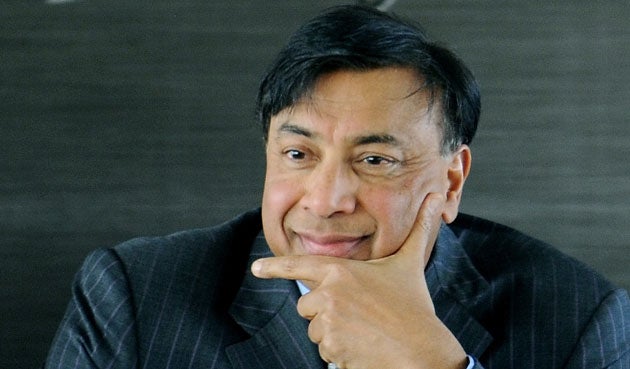Don’t be fooled by claims that the ‘super-rich’ have fallen on hard times – inequality in the UK is getting worse
The people on the Sunday Times Rich List now have more wealth than the poorest 40 per cent of families. Those in the wealthiest 1 per cent own as much as all the households in the bottom 57 per cent of the population put together

It's that time of year again, when we are invited to gawp slack-jawed at the obscene amount of wealth stashed by the richest 1,000 people in the UK. But, this year, the ostentatious wealth parade that is the Sunday Times Rich List has provided something a little different: with a fall in the wealth of some of the country's very richest, it seems the super-rich have fallen on hard times.
Lakshmi Mittal, who topped the Sunday Times Rich List in 2008, has apparently lost three-quarters of his wealth, and is now worth a paltry £7.12bn. Oil billionaires Carrie and François Perrodo and family have meanwhile lost 42 per cent of their fortune since last year, down to £3.35bn.
So what's going on? Are we finally seeing a levelling-off of the wealth of the very richest? Could this be the start of a trend towards greater equality of wealth?
Unfortunately, that seems unlikely. While some have seen significant losses over the last year, by most meaningful measures the wealth of the very richest has actually increased.
The overall wealth of the richest 1,000 people rose by a staggering £28.5 billion last year – nearly £78 million a day. To put that into context, that increase alone could pay for over 1.8 million jobs, paid at the real Living Wage, for a year.
The idea of falling wealth inequality is equally implausible if we expand the picture to look at the wealth
of the richest 1 per cent. According to the latest data from the Office for National Statistics, the wealthiest 1 per cent has actually seen its share of wealth increase since 2010/12, with overall wealth inequality similarly rising.
Those on the Rich List now have more wealth than the poorest 40 per cent of families. Those in the wealthiest 1 per cent own as much as all the households in the bottom 57 per cent of the population put together.
The increase in the gap between the richest and the rest isn't simply a matter of soaring wealth at the very top. The poorest 10 per cent have actually seen their average level of wealth fall, while the top 10 per cent have seen a large increase in their average wealth, from £752,900 to £895,400.
This growing inequality is mostly explained by the widening gaps in property wealth, a problem exacerbated by the fact that the main tax on property – council tax – hits poorer households hardest.
Some will argue that large losses in wealth, such as those that have hit the Mittals show the dynamic nature of the Rich List – fortunes are won and lost; buccaneering 'risk-takers' and 'wealth-creators' both rewarded and punished. But many more on the list are a semi-permanent fixture.
This is not a glossy catalogue of rags-to-riches stories. By some measures, we are second only to the US for the lowest levels of mobility. The most recent report from the Social Mobility and Child Poverty Commission shows how we are failing to close the gap between rich and poor.
Some of the wealth of those on the Rich List will undoubtedly come from hard work. But then most people work hard, and for a lot less.
What has become clear from the Panama Papers leak is that so many of the super-rich are not playing by the same rules as the rest of us. The Sunday Times Rich List sounds a klaxon to remind us that we are living in dysfunctional times, and that our economy is serving the few and failing the many.
If we are to build an economy and a society where all can prosper, we need our political leaders to acknowledge the damaging effects of such vast wealth inequality, and commit to its reduction.
John Hood is acting director of the Equality Trust
Join our commenting forum
Join thought-provoking conversations, follow other Independent readers and see their replies
Comments
Bookmark popover
Removed from bookmarks